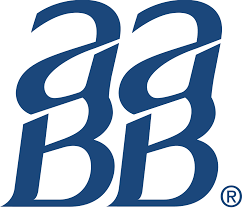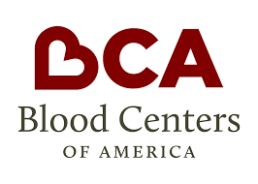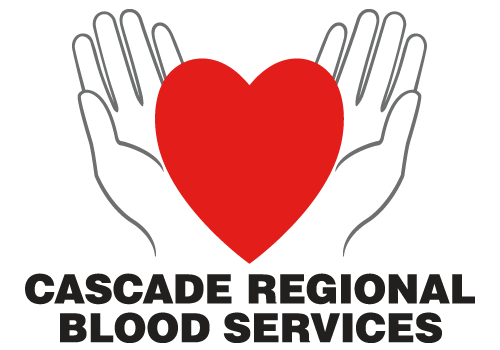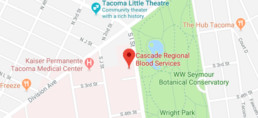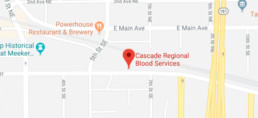Specialty Services
THERAPEUTIC PHLEBOTOMY
Therapeutic phlebotomy is a blood draw procedure prescribed by a physician or other licensed health care provider. It is a treatment to reduce accumulation of excess iron in the body, resulting from conditions such as hemochromatosis and polycythemia. Therapeutic phlebotomy is done by appointment at our Tacoma, Puyallup, and Federal Way Donor Centers.
All Therapeutic Phlebotomy requests require a completed “Request for Therapeutic Services” prescription.
For more information about Therapeutic Phlebotomy services, please contact the Assistant to the Medical Director at 253-383-2553 ext. 228 | atmd@crbs.net
Conditions Treated With Therapeutic Phlebotomy
Increase in Red Blood Cells.
- RBCs carry oxygen to tissues
- Can be inherited or acquired
- Blood becomes thick/viscous
HEREDITARY/FAMILIAL
Due to an intrinsic defect of bone marrow stem cells.
SECONDARY/ACQUIRED
Body produces red cells due to a lack of oxygenation (hypoxemia). Happens in response to tissue hypoxia (smoking), chronic heart/lung diseases, tumors, sleep apnea, long term exposure to high altitude or use of androgenic steroids (testosterone therapy).
SIGNS & SYMPTOMS
Most due to increased blood viscosity. Headaches, dizziness, shortness of breath (SOB), nosebleeds, blurred vision, anorexia, weakness. If extreme, may lead to increased risk of stroke or heart attack.
DEFERRAL
Accept if hemoglobin (Hgb) within normal limits and not related to Primary Polycythemia or Myeloproliferative disorder.
A disorder that causes the body to absorb too much dietary iron.
- Also known as iron overload disorder
- Too much stored iron, if left untreated, can damage joints, organs (particularly skin, heart, liver and pancreas) and can be fatal.
HEREDITARY HEMOCHROMATOSIS (HHC)
TYPE 1: An inherited, genetic disorder is the most common type and appears in adulthood.
Type 2: A juvenile-onset disorder. Iron accumulation begins early in life and symptoms may appear in childhood.
Type 3: Intermediate between types 1 and 2. Onset usually begins before age 30.
Type 4: AKA Ferroportin disease which starts as an adult.
SIGNS & SYMPTOMS
Early symptoms: fatigue, joint pain, abdominal pain, and loss of sex drive.
Advanced symptoms: arthritis, liver disease, diabetes, heart abnormalities, and skin discoloration.
DEFERRAL
Permanent Deferral
healthline.com
ghr.nlm.nih.gov
hemoghromatosis.org
irondisorders.org
A disorder where the bone marrow makes too many red blood cells, white blood cells and platelets.
- Sometimes called erythrocytosis incorrectly as it is specific to an increase in red cells only.
PRIMARY POLYCYTHEMIA
Polycythemia Vera is a slow growing blood cancer in your bone marrow due to a genetic mutation. This mutation is generally not inherited.
SECONDARY POLYCYTHEMIA
Secondary polycythemia is a general term for the overproduction of red blood cells that occurs secondary to a known cause.
SIGNS & SYMPTOMS
Most due to increased blood viscosity. Itchy skin, headaches, blurred vision, fatigue, weakness, dizziness, excessive sweating, painful swelling of one joint (often big toe), shortness of breath, burning in hands and/or feet and feeling of fullness in abdomen due to an enlarged spleen.
DEFERRAL
Permanent Deferral
THERAPEUTIC APHERESIS PROCEDURES
In addition to collecting blood to supply to our community hospitals, CRBS has a staff of highly-trained nurses who perform in-hospital procedures at MultiCare Tacoma General Hospital, MultiCare Good Samaritan Hospital and MultiCare Mary Bridge Children’s Hospital & Health Center. The procedures include:
- Therapeutic Plasma Exchange – The removal and replacement of a patient’s plasma, in order to remove pathogenic substances or replace deficiencies.
- Red Blood Cell Exchange – The removal and replacement of a patient’s diseased red blood cells with healthy cells.
- Cellular Depletions – The removal of harmful amounts of platelets or white blood cells from a patient’s blood.
We are available nights, weekends, and holidays. If you would like to discuss or schedule therapeutic services for your patients, please contact our Apheresis on-call support.
WEEKDAYS (Monday – Friday: 7am – 6pm):
For procedure requests or questions during regular business hours, please call the CRBS Apheresis staff at 253-383-2553 ext 213
AFTER HOURS / WEEKENDS / HOLIDAYS:
Call the Apheresis on-call phone at 253-365-9557
PRODUCT AND RESEARCH REQUESTS
CRBS maintains its own healthy donor research protocol approved by IRB. Blood products collected for research include:
- Red Blood Cells
- Whole Blood Cells
- Plasma
- Platelets
- Cryoprecipitate
- Specialized products
“Thousands of lives in Pierce and King Counties have been saved because of Cascade Regional Blood Services’ blood products. Without their partnership and the dedication of blood donors, our ability to help these patients would be very challenging. We are grateful that Cascade Regional Blood Services provides all the blood products for our patients in our Puget Sound area hospitals.”
– Multicare Health System
